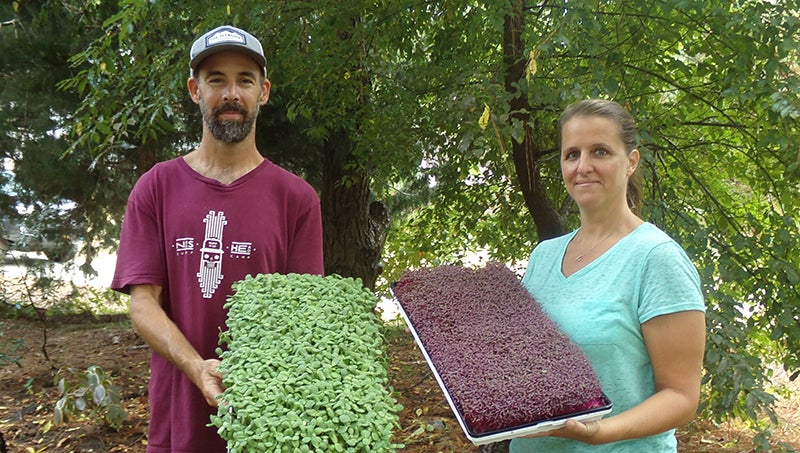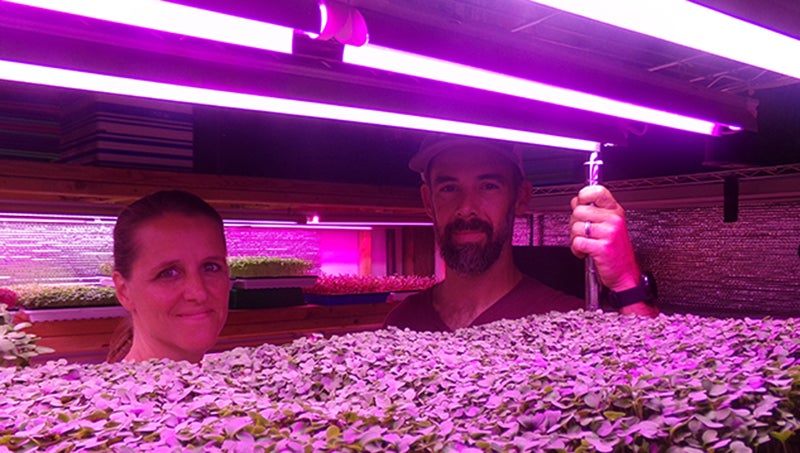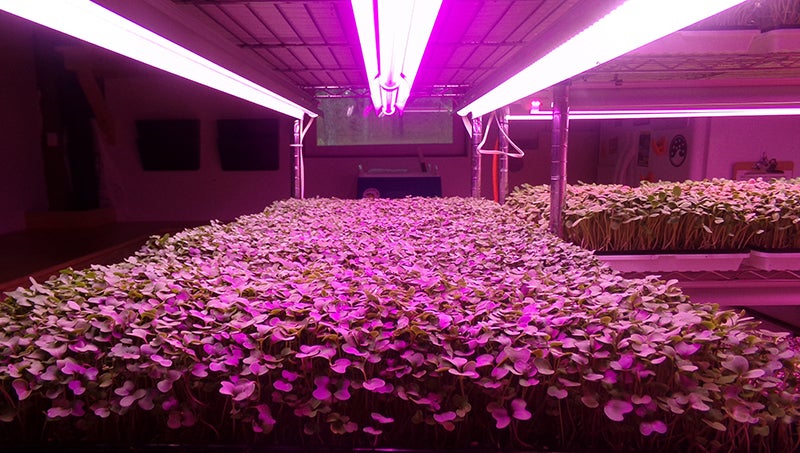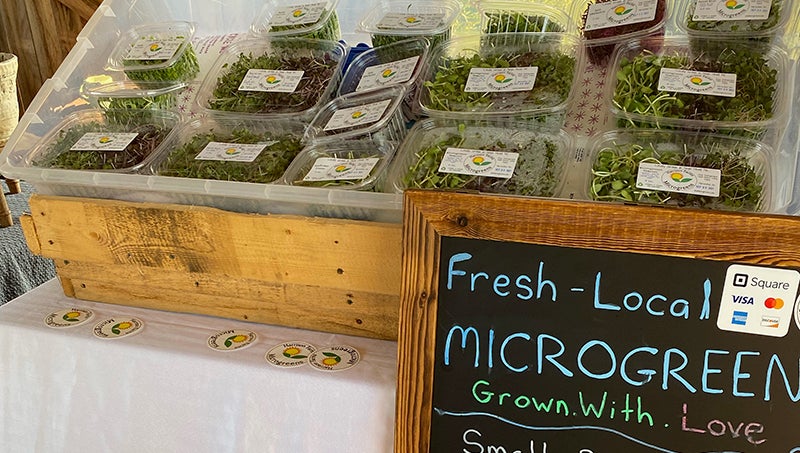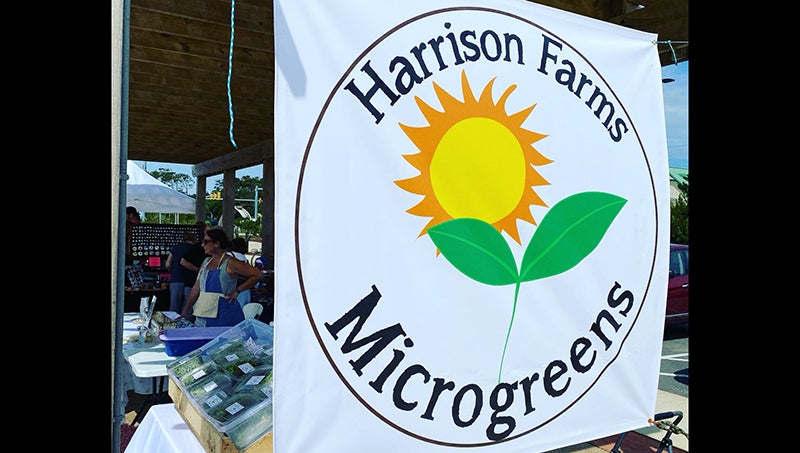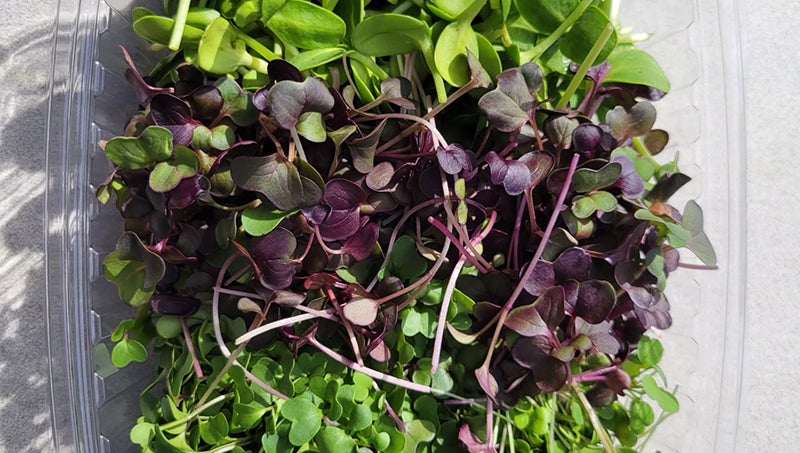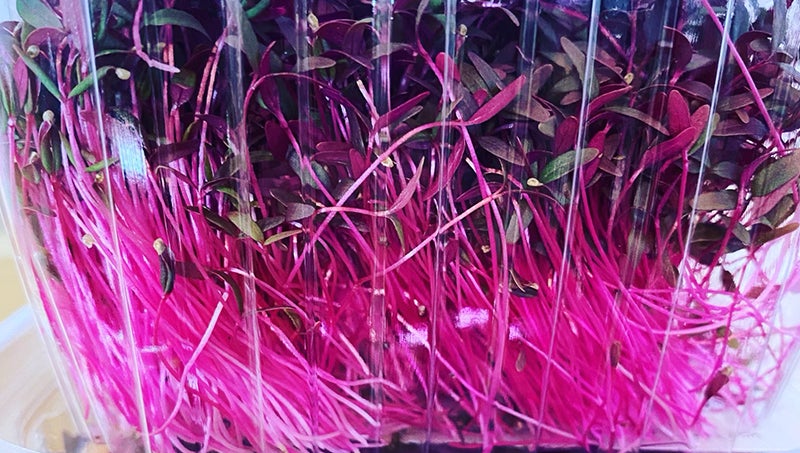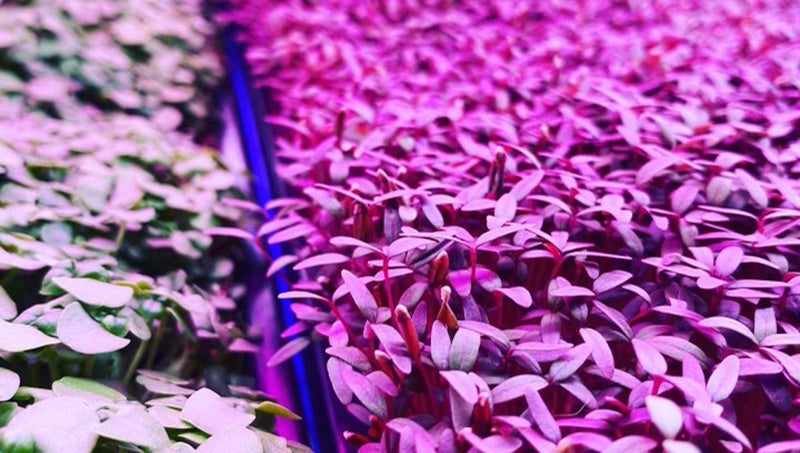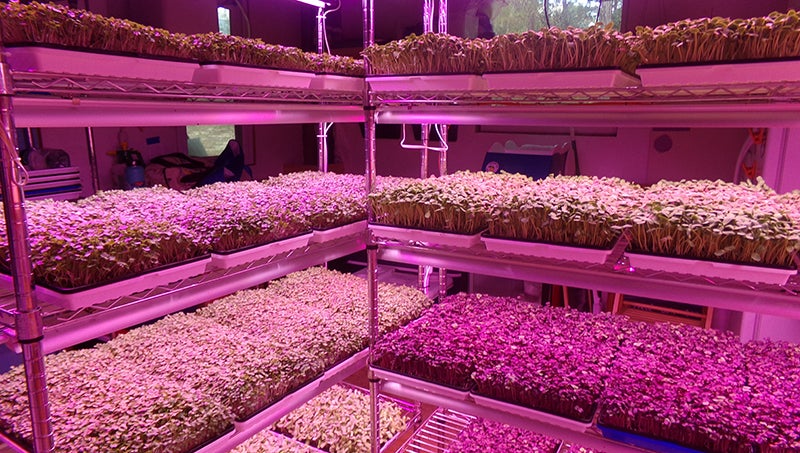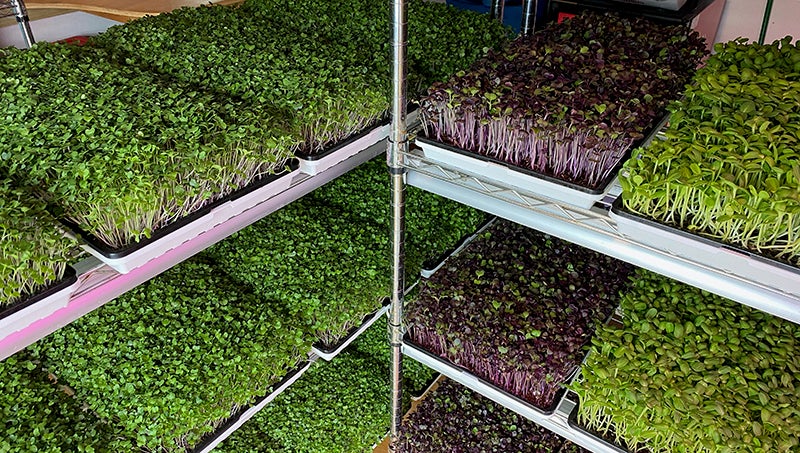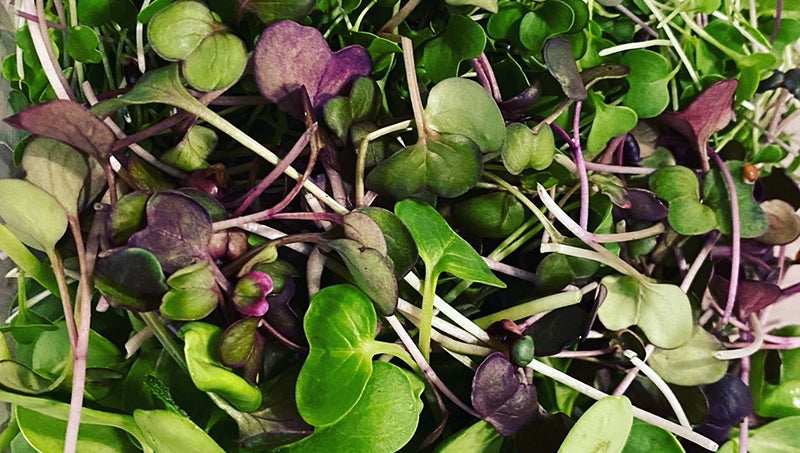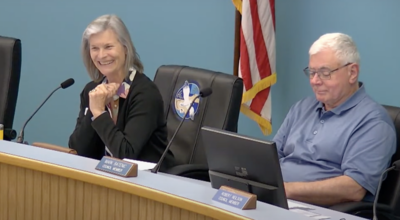Harrison Farms: Microgreens pack mega nutrition
Published 11:02 am Saturday, October 30, 2021
|
Getting your Trinity Audio player ready...
|
Tucked behind an ordinary Nags Head house is perhaps the tiniest farm in the county, Harrison Farms Microgreens.
Microgreens – not to be confused with sprouts – are tiny plants, harvested after the first set of leaves have developed, usually at 7 to 21 days. They’re jam-packed with vitamins and antioxidants and can be up to 40 times more nutritious than adult plants.
Harrison Farms Microgreens got its start when owner Brett Harrison got tired of buying bagged salad at the grocery store, only to bring it home and it find slimy and smelly. “Nutrient decay starts happening the moment you cut a plant. It’s much more nutritious to buy produce on a local scale,” he said.
He had always enjoyed gardening. “We try to grow our own food,” he said. “But sometimes you spend all this energy and it burns up or you end up with 200 cucumbers.” So he started researching microgreens. “I like systems. I liked the idea that I could make this controlled environment that would consistently provide all year if we wanted.” He started experimenting with the greens and sharing them with friends and neighbors. It wasn’t long before friends were asking for more.
Harrison Farms grows sunflower, red radish, broccoli, kale, red cabbage, arugula, basil, cilantro and amaranth microgreens and is experimenting with beets. Though the farm is not USDA certified organic, he uses all organic soil and follows practices consistent with an organic farm. Harvesting microgreens is catching the plant is in its sweet spot – the leaves are tender and flavorful and they are packed full of nutrients and antioxidants. And the taste? “My five- and six-year-old clients love them,” laughed Harrison.
So what can you use these tiny greens on? Apparently, just about everything. “They taste amazing!” said Harrison. Popular uses are on eggs, sandwiches, tacos, avocado toast, cream cheese bagels, soups and pasta. “You can put them on every meal. They make your meal look and feel special, like you’re at a fancy restaurant,” said Harrison. His favorite are the basil microgreens on a homemade sourdough pizza. “Oh my gosh they’re so good. It’s like everything you ever dreamed basil would be,” he said. Don’t have time for homemade pizza? “Even buy a local pizza and throw some on there,” he said.
The sunflower microgreens are great in smoothies – “they give you so much nutrition,” Harrison said, who has so much energy it’s obvious he’s been eating his greens.
The company’s Facebook page has a dozen pictures of ordinary foods like fried eggs and pinto beans transformed into restaurant-worthy presentations by a sprinkling of microgreens.
But microgreens don’t just add visual appeal. “When I eat them, I can tell it’s benefiting my system. I definitely have more energy,” said Elizabeth Bradley, who has worked at the farm since May 2020 and does much of planting and harvesting.
The process for growing microgreens is quick and repetitive. “We joke that it’s like Groundhog Week,” Harrison said. Bradley plants densely layered seeds in trays of organic soil on Wednesday. Within a couple days, the seeds have sprouted and they are moved under the grow lights in Harrison’s small greenhouse. The greenhouse is kept at in the mid 70s and is equipped with a heater, an air conditioner and a dehumidifier. A fan blowing constantly keeps mold (which is all around us) from settling onto the greens.
Bradley keeps the plants moist as they grow a total of two to three inches, depending on the variety. Wednesday is harvest day when the microgreens are cut, washed, dried, packaged and refrigerated for market on Thursday. Most of the greens have an 8-day turnaround, while varieties such as basil and cilantro take two to three weeks to reach the microgreen stage.
During the summer, Harrison set up booths at Secotan Market in Wanchese and at Dowdy Park Farmer’s Market in Nags Head. “It’s my local community,” he said. “It was awesome. I feel more a part of this community than I ever have, going to these markets, having conversation. We pretty much sold out every week. People are so grateful, and honestly, we’re grateful that they want to buy it.”
He sells now at Secotan Market in Wanchese on Saturday mornings from 9 a.m. to noon and during their holiday markets, and at Shine-On Juicery in Kill Devil Hills. In the fall and winter, Harrison Farms offers home delivery. Orders that come in by 9 p.m. will be delivered on Fridays.
With microgreens, because the plants are young, they have a shorter shelf life and should be consumed within 7-10 days. Because of that, Harrison is focused on local distribution only. “You’re getting it within a day, two days from harvest,” he said.
Aside from the product itself, there’s another thing that Harrison is excited about. This summer when a tropical storm blew through, he ended up with a lot of unsold microgreens. “We took them over to the food pantry. I didn’t know if they’d want them, but they were stoked. Since mid-summer, we’ve donated over 100 boxes to the food pantry. This year we will do a weekly donation. We try to grow a little extra for that,” he said.
When asked if he plans to expand his crops, Harrison replied, “I’m just focusing on the microgreens for now. Keeping the quality high is more important than conquering the world.”
Bradley agreed: “Quality is very important to him. He’s not going to cut corners. He’s very environmentally conscious.”
One of the ways Harrison Farms cares for the environment is by using compostable containers. “They’re made out of corn and not petroleum, so they’ll break down faster than regular plastic,” Harrison said. Whenever possible, returned containers are reused after being cleaned and sanitized. The national interest in buying local produce, or growing your own food, is increasing. “There’s a movement toward decentralization in agriculture. It’s fun to really be a part of it.”
Large (4 oz.) boxes sell for $12, and the smaller ones (1.5-2 oz. depending on the crop) go for $6. Like many food producers, Harrison Farms had had to raise their prices due to an increased cost for seeds, soil and containers. But Harrison makes sure the boxes are chock full. “We overfill them by 15 percent – we load those boxes,” he said. “There’s a lot more in there than you realize.”
Harrison Farms can be reached online at www.obxmicrogreens.com, via Facebook (Harrison Farms Microgreens), Instagram (Harrison Microgreens), email (harrisonmicrogreens@gmail.com) or by calling 252-489-1040.


